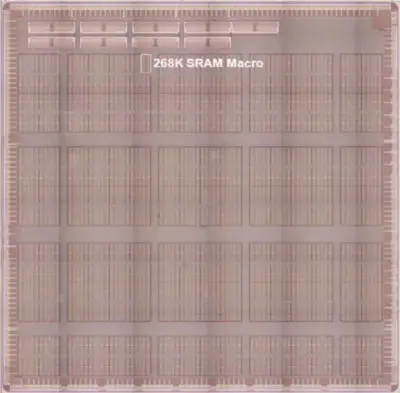From WikiChip
20 nm lithography process
The 20 nanometer (20 nm) lithography process is a half-node semiconductor manufacturing process used as a stopgap between the 22 nm and 16 nm processes. The term "20 nm" is simply a commercial name for a generation of a certain size and its technology, as opposed to gate length or half pitch. Commercial integrated circuit manufacturing using 20 nm process began in 2014. This technology superseded by commercial 16 nm process.
Contents
Industry
| Fab |
|---|
| Process Name |
| Transistor |
| Wafer |
| |
| Contacted Gate Pitch |
| Interconnect Pitch (M1P) |
| SRAM bit cell |
| Samsung | TSMC | ||
|---|---|---|---|
| 20LPM | |||
| Planar | |||
| 300 mm | |||
| Value | 28 nm Δ | Value | 28 nm Δ |
| 86 nm | 0.75x | 87 nm | 0.71x |
| 64 nm | 0.71x | 67 nm | 0.70x |
| 0.081 µm² | 0.675x | 0.081 µm² | 0.64x |
TSMC
TSMC demonstrated their 112 Mebibit SRAM wafer from their 20 nm HKMG process at the 2013 IEEE ISSCC.
References
- Shang, Huiling, et al. "High performance bulk planar 20nm CMOS technology for low power mobile applications." VLSI Technology (VLSIT), 2012 Symposium on. IEEE, 2012.
20 nm Microprocessors
- MediaTek
This list is incomplete; you can help by expanding it.
20 nm Microarchitectures
This list is incomplete; you can help by expanding it.
References
- Chang, Jonathan, et al. "A 20nm 112Mb SRAM in High-к metal-gate with assist circuitry for low-leakage and low-V MIN applications." Solid-State Circuits Conference Digest of Technical Papers (ISSCC), 2013 IEEE International. IEEE, 2013.
 Semiconductor lithography processes technology
Semiconductor lithography processes technology
